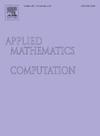网络进化囚徒困境博弈中的社区互惠促进合作
IF 3.5
2区 数学
Q1 MATHEMATICS, APPLIED
引用次数: 0
摘要
群落结构是复杂网络最常见的特征之一,在进化过程中对策略博弈起着至关重要的作用。以往的研究集中在其高凝聚力和低耦合的物理特征上,我们扩展了现有的研究,从逻辑功能的角度考虑社区通过集体行动有效管理和分配资源的能力。在囚徒困境博弈的基础上,提出了一种以社区互惠为特征的进化模型。特别地,我们假设参与者可以以一定的概率从社区中获得合作者贡献的共享资源,并且参与者可以收获的互惠资源的数量取决于他们在社区中的位置。通过对两个著名的内置社区结构的合成网络进行深入仿真,结果表明,社区结构可以增强互惠性,促进合作的进化。合作繁荣的方式是通过占据社区中更有利位置的节点。此外,社区结构的明确性在社区互惠对合作的促进作用中起中介作用。本文章由计算机程序翻译,如有差异,请以英文原文为准。
Community reciprocity promotes cooperation in a network evolutionary prisoner’s dilemma game
Community structure is one of the most common features of complex networks and plays a crucial role in the game of strategy during an evolutionary process. Previous works focus on its physical characteristics of high cohesion and low coupling, we extend the existing research, by taking into consideration the capacity of communities to effectively manage and allocate resources through collective action, from a logical functional perspective. Based on the Prisoner’s Dilemma Game, we develop a new evolutionary model featuring community reciprocity. In particular, we assume that players could obtain the shared resources contributed by cooperators from communities with a certain probability, and the quantity of reciprocal resources players could reap depends on their positions in the community. Through intensive simulations on two famous synthetic networks with built-in community structure, the results show that community structure can provide enhanced reciprocity and promote the evolution of cooperation. The way that cooperation prospers is by occupying nodes with more advantageous positions within the community. Besides, the clarity of community structure mediates the promoting effect of community reciprocity on cooperation.
求助全文
通过发布文献求助,成功后即可免费获取论文全文。
去求助
来源期刊
CiteScore
7.90
自引率
10.00%
发文量
755
审稿时长
36 days
期刊介绍:
Applied Mathematics and Computation addresses work at the interface between applied mathematics, numerical computation, and applications of systems – oriented ideas to the physical, biological, social, and behavioral sciences, and emphasizes papers of a computational nature focusing on new algorithms, their analysis and numerical results.
In addition to presenting research papers, Applied Mathematics and Computation publishes review articles and single–topics issues.

 求助内容:
求助内容: 应助结果提醒方式:
应助结果提醒方式:


